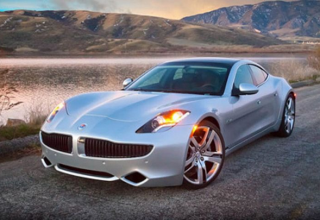The automobile industry is quickly moving towards electric vehicles, but the technology behind them has not yet reached its full potential.
Electric cars are still more expensive than their gas-powered counterparts, and they remain a niche market due to their limited range and high initial cost.
In the future, electric car batteries are expected to improve and become more efficient, making them increasingly affordable for consumers.
In this article, we’ll look at the current state of electric car technology and how it may change in the future.

Electric cars throughout history
You will be surprised to learn that electric cars have been around for a long time. However, they only grew popular very recently. It’s estimated that there are over 40 million electric vehicles on the road today–and this number is expected to grow exponentially in the coming years.
Cars like all electric Chevy Silverado are becoming more popular, and many consumers opt for electric vehicles instead of their traditional counterparts.
What does this mean for the future of electric vehicle technology? One reason to support the development of electric vehicles is that demand for them will increase. Additionally, there are several other reasons why the technology behind these cars is so important.
How might the future of electric cars look?
The evolution of battery technology will determine the future of electric cars. As the use of electric vehicles grows, the need for better batteries is also growing. But technological advances are not limited to just improving battery life. They’re also being made in terms of performance and safety.
The future of electric cars is a global phenomenon: countries worldwide are investing heavily in research programs aimed at developing new systems for charging stations, developing alternative fuels such as hydrogen or natural gas, improving battery life–and much more!
What challenges does the future of electric cars face?
While the future of electric cars is bright, it faces several challenges that could slow its progress. First, the range remains a significant concern for many consumers.
While battery technology has improved and charging times have decreased over time, there are still places to which you can’t drive an electric car without spending hours charging up along the way (or paying exorbitant fees).
Secondly, there isn’t enough infrastructure to support the mass adoption of EVs. Many drivers don’t have access to high-speed chargers at home or work because they don’t live in cities where local governments or private companies have installed these.
Why is the range so crucial for the future of electric cars?
The range is the most critical factor for consumers, manufacturers, and governments. It’s also essential for charging infrastructure providers and investors. For example:
- Consumers want cars that do not require recharging after long trips. They want their cars to handle any road condition without worrying about running out of power or being stranded in an area without any charging stations nearby.
- Manufacturers want their electric vehicle (EV) models to have an excellent range to attract more customers without sacrificing performance or style.
How will rising fuel costs affect the price of electric cars?
The gas price is expected to rise in the future, so people will be more inclined to buy electric cars. The cost of electricity is also expected to increase as our society continues to rely on it for power.
This means that even though electric cars are currently more expensive than their gas-powered counterparts, their prices will fall over time as technology advances and becomes cheaper to produce.
In addition, drivers will save money on maintenance costs since no internal combustion engines need servicing or regularly replacing like those found in traditional vehicles (which can cost thousands).











